Healthy Living
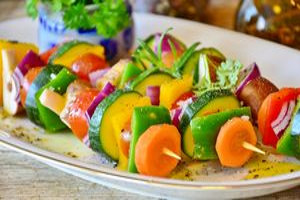
This science scheme of work for Key Stage One gets the children to identify and compare the benefits of different types of foods including fruit and vegetables and discuss ways to care for the body using cleaning and exercise tasks. The class can build a timetable to select and record daily activities to stay healthy.
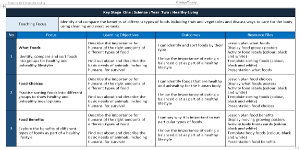
Identify and compare the benefits of different types of foods including fruit and vegetables and discuss ways to care for the body using cleaning and exercise tasks
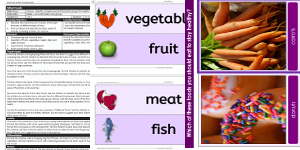
Lesson One : What Foods
Identify, compare and sort a range of different foods into groups for healthy and unhealthy lifestyles
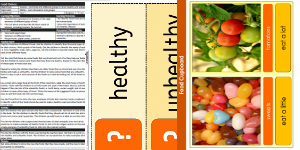
Lesson Two : Food Choices
Practise sorting a range of different foods into groups to show healthy and unhealthy meal options
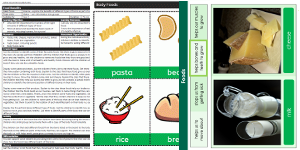
Lesson Three : Food Benefits
Explore and record the benefits of different types of foods as part of a healthy lifestyle
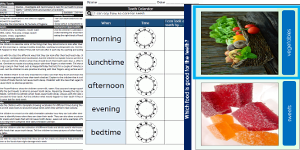
Lesson Four : Healthy Teeth
Investigate and record some of the special ways of caring for the teeth to prevent tooth decay.
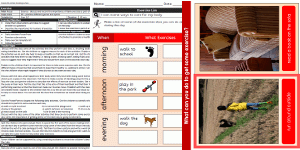
Lesson Five : Exercise
Identify and record the importance of a daily exercise routine as part of a healthy lifestyle
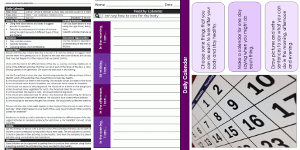
Lesson Six : Daily Calendar
Devise and produce a calendar to show daily activities that can be completed as part of a healthy lifestyle
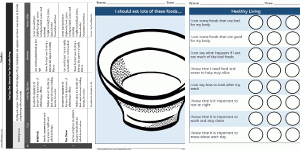
Healthy Living Assessment
Assess abilities in identifying and comparing the benefits of different types of foods and discussing ways to care for the body
-

Money Coin Sums
Practise identifying, combining and recording sets of coins that can make matching sums that can be used when shopping for different products
-

Maths Number Assessment
Assess abilities in working with numbers to solve abstract and contextual problems when calculating sums, products and quotients using different techniques and methods
-

Animal Lists
Investigate how to compile lists using commas to present information about some of the special animals that live in habitats around the world
-

English Spelling Assessment
Assess abilities in spelling different vocabulary words based on the National Curriculum programmes of study for Key Stage One
